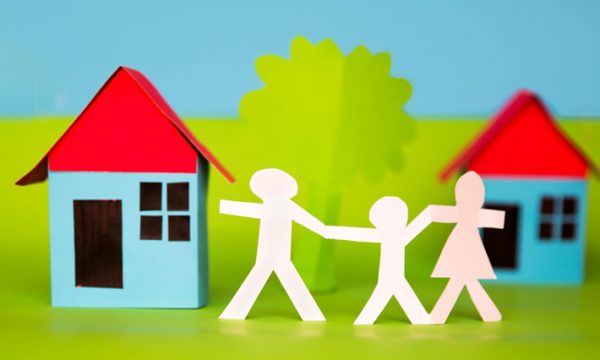Learning to solve problems is part of maturing from child to adult. However, we often forget that children do not develop these skills intuitively, but they must be modeled and taught.
By finding their own solutions, children gain confidence and self-esteem. We can all remember a time when we finally overcome a problem we had struggled with and the sense of pride we had as a result; these great experiences build our confidence and self-esteem.
Feeling confident in our abilities to solve our own problems lowers our anxiety because we know that we can face unexpected situations, easily solve our problems and take care of ourselves.
Solutions to problems come from ideas and to generate these ideas, children need to learn to think creatively and critically. As parents, what can we do to create an environment that encourages and guides our children to solve their problems effectively?

• Encourage free play. Free play creates many opportunities to identify problems and to try different ideas and possible solutions. The opportunity to explore and experiment in an unstructured environment gives them the opportunity to follow their curiosity and play with cause and effect on their own terms.
• Reinforce persistence and effort. Persisting and not giving up are critical skills to face challenges and solve difficulties.
• Ask lots of questions to encourage your children to think for themselves. For example, instead of reminding them to brush their teeth before going to school, consider asking, “What else do you need to be ready this morning?” Or: “You miss one thing guess what it is” These questions also encourage creative thinking, another essential skill for problem solving.
• Avoid rushing to solve children’s daily problems; let them make mistakes and learn from them. If a child builds a Lego’s ™ building and it falls down, the child has the opportunity to use his reasoning and logical skills to recreate the building more stably, as well as to develop confidence in his own abilities. Assisting them too soon also sends two indirect problematic messages: first, that the problem is not theirs, but their parents. Second, that we are not sure they can solve the problems on their own.
• Be alert when your children have tried to solve a problem repeatedly or have not been able to overcome the obstacles on their own. Sometimes we need to intervene to ask questions or to show that, although sometimes the problems frustrate us, they have a solution.
• Help children understand and manage their emotions. It is difficult to think clearly when we are very angry or frustrated. By teaching children to identify and label their emotions, they can begin to distinguish them from the problem. Once calmed we can think clearly enough to solve problems more effectively.
• Assure your child that you know he can handle problems. Let them know that you believe they are able to solve a problem easily (before they even tried it!), Explain to them that you have confidence in their ability to find a solution with a little of dedication.
• Model clear thinking, a positive attitude, and a process to solve the small problems of life. Children always watch us and see how we handle problems. Show them that a challenge or a small failure in the day is not an obstacle. Verbalize your thinking process and how you work through the problem.
Be willing to make mistakes and openly accept the mistakes made by your child as learning opportunities. It is a relief for children to discover that adults make mistakes too. Let the children see some of your mistakes and ask them to help you solve the resulting problems. They will feel important and, at the same time, they will learn that making mistakes is not really that bad, after all!
Teaching children to solve their own problems allows them to learn, think, feel confident and be competent in understanding their world. Let’s assume this educational task at home!

